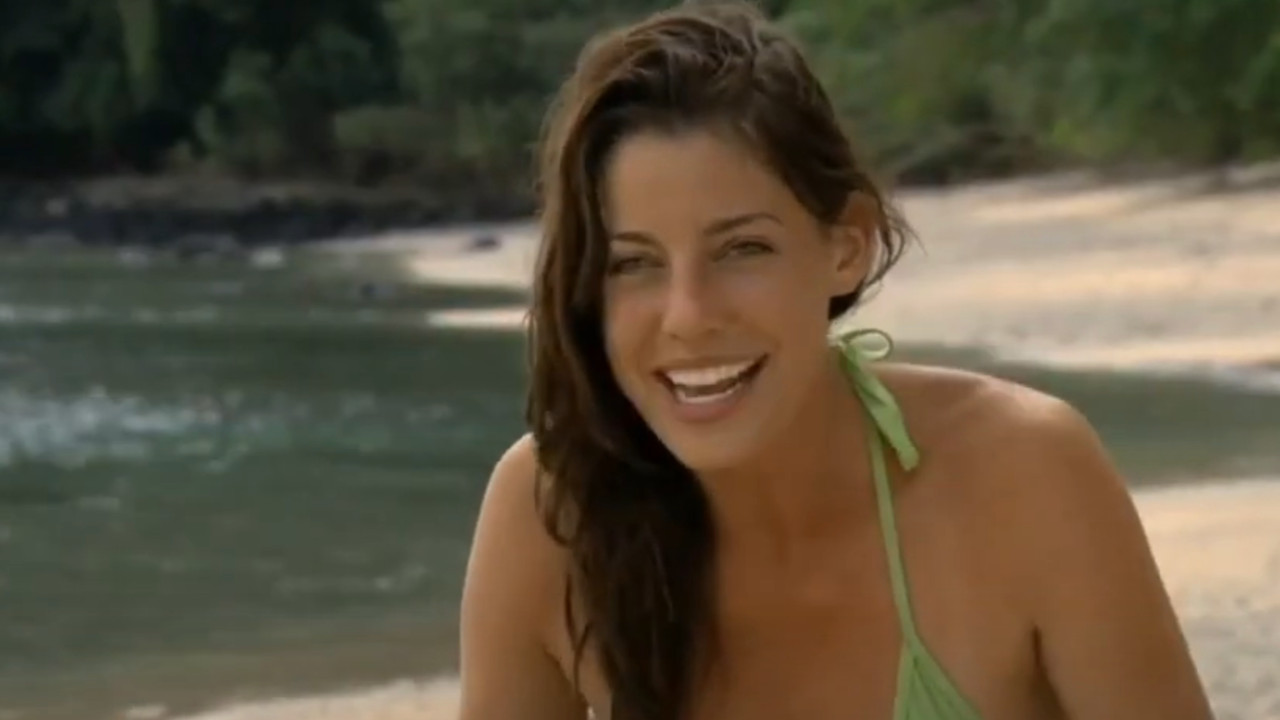I'm Glad I Watched Jonathan Glazer's Zone Of Interest... But I'll Probably Never Be Able To Watch It Again
A cinematic experience I'll never forget...
Let me get this out of the way before I get too far down the proverbial rabbit hole; Jonathan Glazer’s The Zone of Interest was one of the best movies of 2023. It had everything I look for in a movie: a riveting and engaging story, tremendous performances, and perfectly composed cinematography, and it left me in awe when I first saw it. That being said, while I’m glad I watched what could be one of the best A24 movies in recent memory, it’s more than likely going to earn a spot on my “Watched once and never again” shelf.
This is not to say it’s a bad movie, because it’s not. Like I just said, it checks all the boxes, but just like Schindler’s List, The Boy in the Striped Pajamas, and Son of Saul, all movies also set in the Holocaust, it wrecked me. I’m talking about a “staying up until 3 a.m. contemplating life and humanity” variety of wrecked. But please, allow me to explain why this is a movie you should definitely watch, but maybe just the one time.
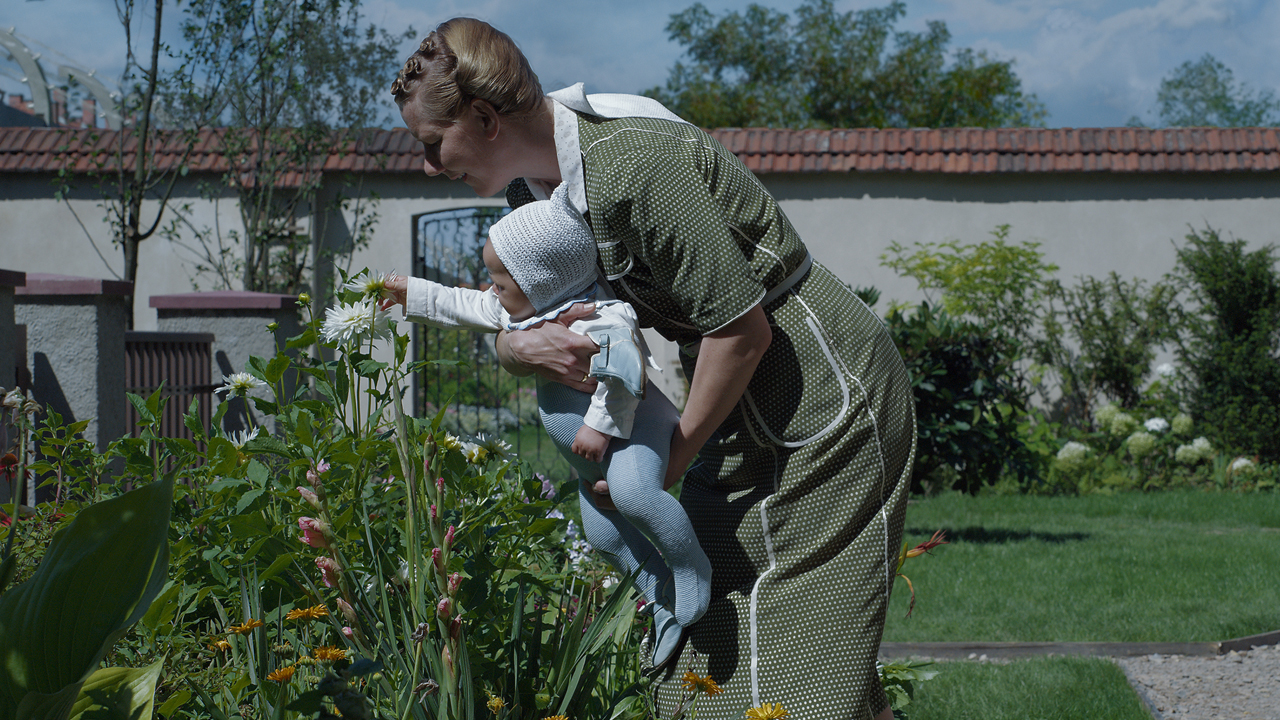
The Zone Of Interest Was A Visual (And Auditory) Masterpiece
When I first started hearing about the film and then when I watched The Zone of Interest trailer, I was immediately drawn to both the visuals and sound design of Jonathan Glazer’s first movie in a decade (Under the Skin came out in 2013). And when I was finally able to watch the movie in full, I was captivated by both of those aspects, so much so, I consider it to be a visual (and auditory) masterpiece.
How Glazer and cinematographer Łukasz Żal shot the film was beautiful, captivating, and absolutely terrifying. The juxtaposition of the beautiful and idyllic gardens at the Höss home with the fortified walls and endless plumes of smoke from the Auschwitz concentration camp took my breath away. The barrage of screams, machinery, and a constant buzz coming out of the camp (which we never see) created a similar feeling, one that left me speechless. No wonder it won Best Sound at the 2024 Academy Awards.
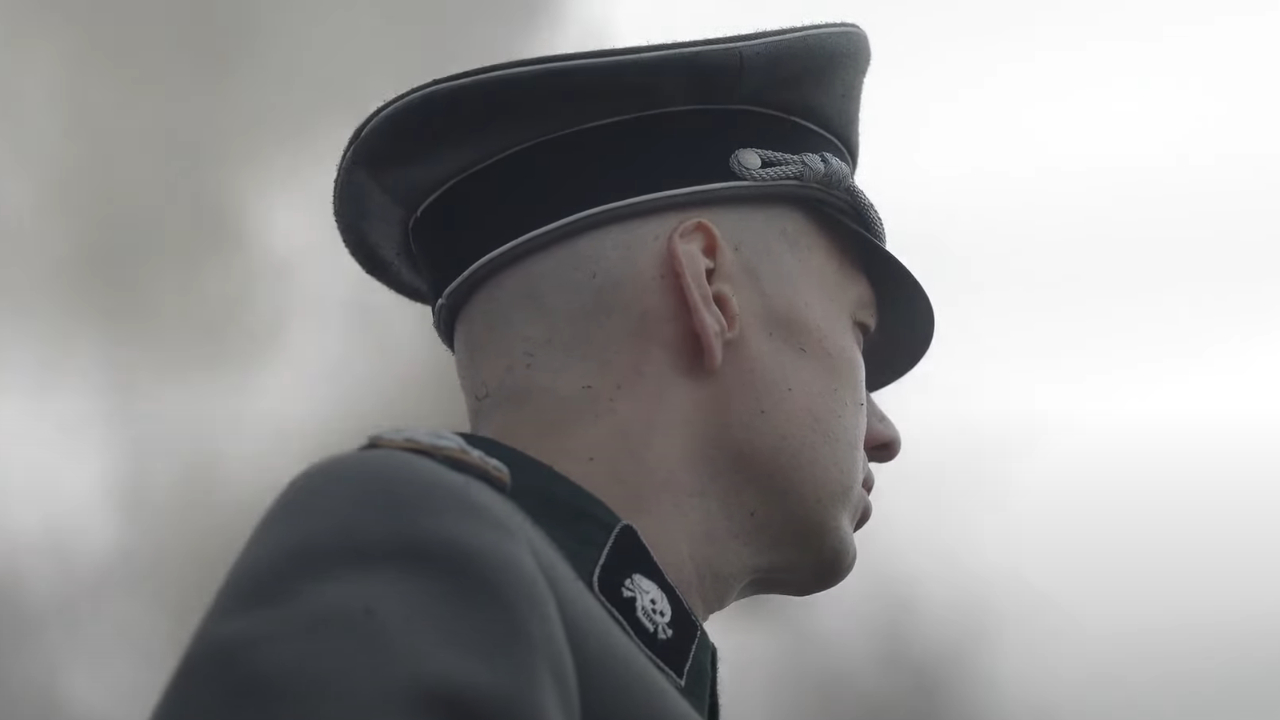
However, The Off-Screen Depictions Of Violence, Torture, And Death Messed Me Up
Unlike other movies depicting the Holocaust, The Zone of Interest never shows the violence, torture, and death from inside the walls of Auschwitz, but that doesn’t mean you don’t feel it throughout the movie. Though I couldn’t see the horrible acts inside the walls, I could hear them and feel them as characters walked through the Höss home or the painstakingly crafted and pruned gardens.
The constant sounds of death and destruction, the arrival of daily trains knowing that they were bringing thousands upon thousands of innocent souls to their deaths, and the smoke and nightly fires coming from the crematorium forced my brain to fill in the blanks. And honestly, it was an exercise that messed me up, no matter how hard I tried to block it out.
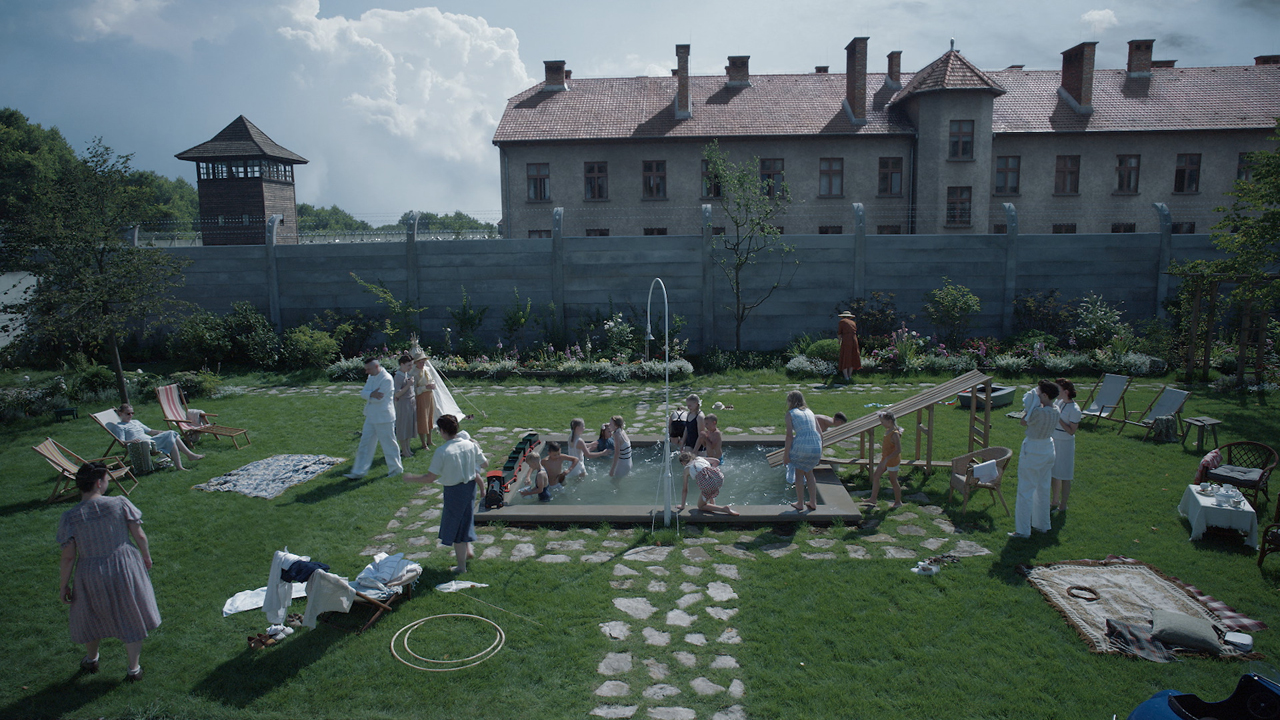
The Characters' Compartmentalization Of The Horror Next Door Says A Lot About Coping
The Zone of Interest features one of Sandra Hüller’s best performances with her portrayal of Hedwig Höss, the wife of Rudolf Höss (Christian Friedel), the commandant of Auschwitz. What’s so remarkable about her turn in the movie is how her character compartmentalizes the horror just outside the garden and home she has built for her children. She almost detaches herself from the atrocities that her husband is directly causing mere meters away (as well as at other camps throughout Nazi-occupied Europe) and loses herself in keeping her garden a place of peace.
Your Daily Blend of Entertainment News
The way Jonathan Glazer depicts this character, and many others who are all doing the same thing throughout the film, strikes a chord as it represents how, as humans, we tend to put up walls to blind us from the evil of the world, even if WE are the thing we’re trying to hide from.
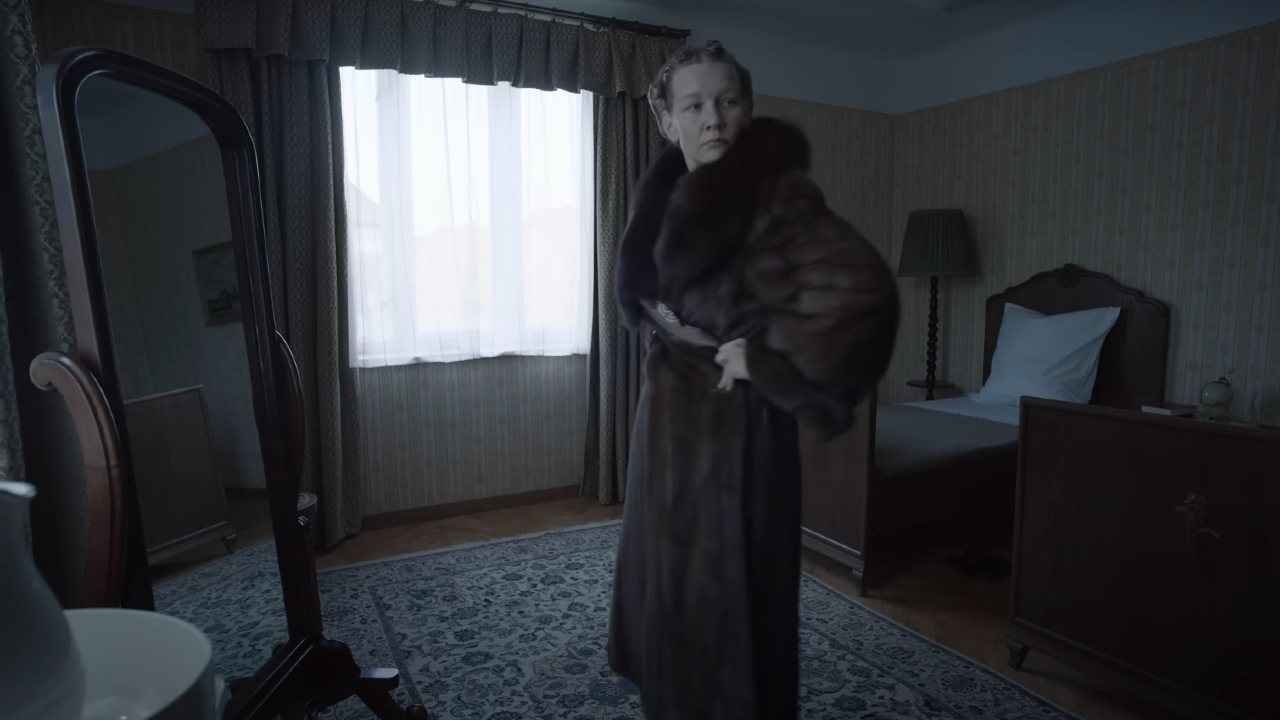
But At The Same Time, I Almost Felt Complicit In The Atrocities
The Höss family, for the most part, are depicted as normal people just going about their lives, detached from the crimes they are committing against humanity. While watching the movie, I couldn’t help but almost feel complicit in the atrocities they were either committing or overlooking, and it really messed me up. As Jonathan Glazer said in his ReelBlend interview, the movie captures a sense of recency, which only compounded my feelings of being complicit.
Sure, I’m not out committing crimes against my neighbors or killing millions of people because they don’t share the same ideologies or have completely different backgrounds, but I, like so many others, put up walls around myself and remain silent while people suffer. Whether looking the other way when a homeless person asks for change or flipping the channel when war crimes are being committed, my lack of action is a terrible action in itself.
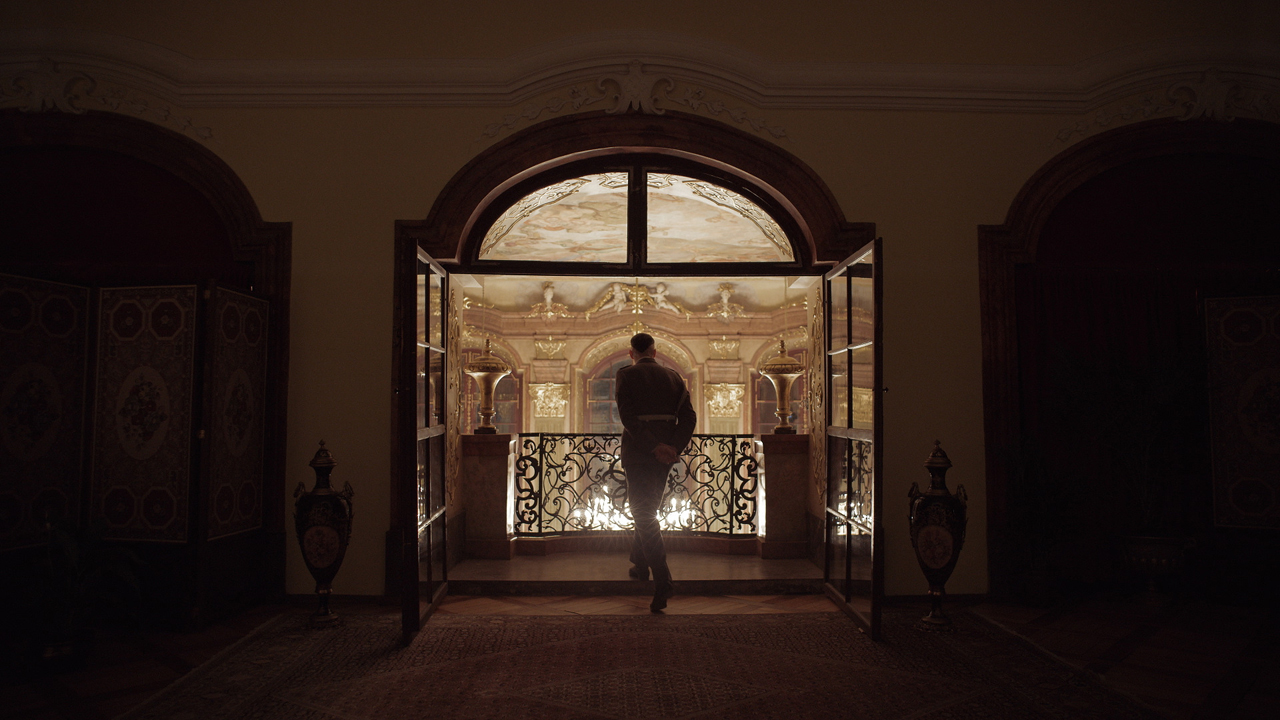
Jonathan Glazaer's Unique And Inventive Storytelling Makes The Zone Of Interest A Film Like No Other
One thing I enjoyed about The Zone of Interest was Jonathan Glazer’s storytelling methods, which created a unique and inventive cinematic experience that I won’t soon forget. Not a whole lot is stated explicitly throughout the movie, which forces you to hold onto every word of every conversation to piece together the story. The inclusion of the secondary story of a young Polish girl sneaking around hiding food for prisoners at night was at first a little confusing and jarring, but as the significance of those segments unfolds, it adds another dimension to the film.
Glazer and cinematographer Łukasz Żal also shot the movie in an inventive way in which cameras were embedded into the walls of the home, meaning the actors could improvise and further get into their characters while the crew monitored remotely, per The Hollywood Reporter. Unsurprisingly, this had a major impact on the storytelling.
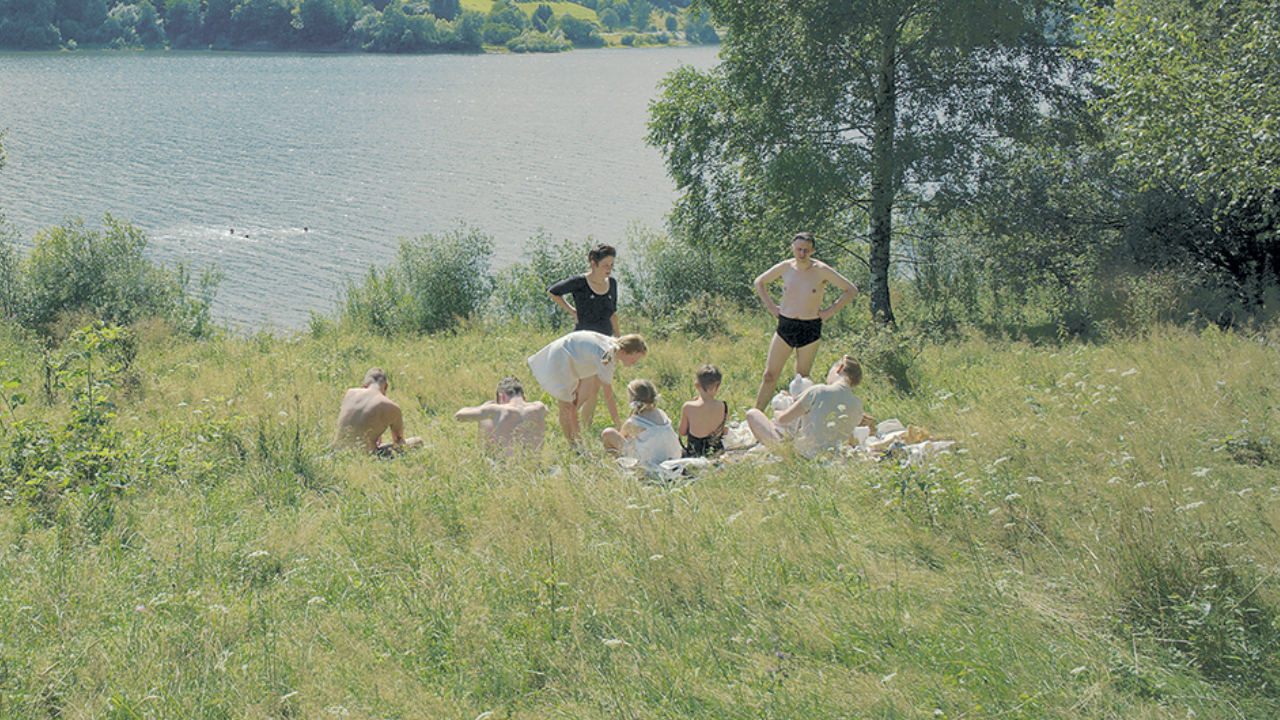
The Movie Is About The Banality Of Evil And That Makes It All The More Real And Unsettling
Outside of a few scenes, the characters in The Zone of Interest are largely presented as normal people, which really drives home the theme of the banality of evil. By showing Nazi families living lives not too unlike the ones our grandparents and great-grandparents were living at the same time, it breaks down the aura or mystique of those atrocities. Instead of being seen as monsters, they are seen as men, which is far scarier.
The whole idea of the banality of evil makes the movie all the more real and unsettling. It’s like when you see pictures or videos of Adolf Hitler laughing or dancing around with family and friends. It almost humanizes them, which has me all kinds of messed up.
Though I can revisit The Zone of Interest with a Max subscription, I'm still on the fence about going through it all again. Regardless if I ever visit it again, I'm forever grateful that I was able to watch Jonathan Glazer's Oscar winner at least once.

Philip grew up in Louisiana (not New Orleans) before moving to St. Louis after graduating from Louisiana State University-Shreveport. When he's not writing about movies or television, Philip can be found being chased by his three kids, telling his dogs to stop barking at the mailman, or chatting about professional wrestling to his wife. Writing gigs with school newspapers, multiple daily newspapers, and other varied job experiences led him to this point where he actually gets to write about movies, shows, wrestling, and documentaries (which is a huge win in his eyes). If the stars properly align, he will talk about For Love Of The Game being the best baseball movie of all time.
